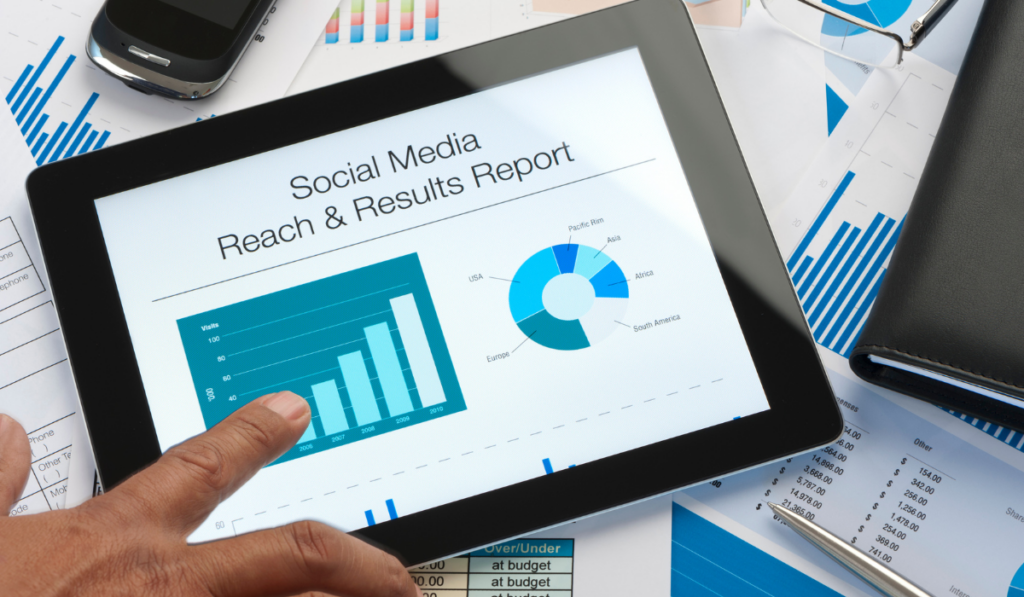Social media has become an integral part of our lives in today’s digital age. It is a powerful platform for connecting individuals and businesses, sharing ideas, and promoting products or services. With billions of users actively engaging on various social media platforms, it has become essential for businesses to measure and analyze their social media performance effectively. This is where social media reporting plays a crucial role. This article will explore the significance of social media reporting, its benefits, and how businesses can leverage it to enhance their online presence.
Why is Social Media Reporting Important?
Understanding Key Metrics
One of the primary reasons social media reporting is vital for businesses is its ability to provide a comprehensive understanding of key metrics. By analyzing these metrics, businesses can gain insights into the effectiveness of their social media strategies. Key metrics such as reach, engagement, click-through rates, and conversion rates help businesses evaluate the success of their campaigns and make data-driven decisions for future improvements.
Tracking Performance and ROI
Another crucial aspect of social media reporting is the ability to track performance and return on investment (ROI). Businesses invest significant resources in social media marketing, and evaluating the outcomes of these investments is essential. Reporting allows businesses to determine which platforms, campaigns, or content types are yielding the best results. This information enables them to optimize their strategies, allocate resources effectively, and achieve higher ROI from SEO services.
Identifying Audience Insights
Social media reporting provides businesses with valuable insights into their target audience. Businesses can better understand their audience’s preferences and interests by analyzing demographic data, engagement patterns, and user behaviour. These insights enable businesses to create more personalized and targeted content, fostering stronger connections with their audience.
How to Leverage Social Media Reporting for Business Success
Setting Clear Goals
To effectively leverage social media reporting, businesses must establish clear goals. Whether it’s increasing brand awareness, driving website traffic, or generating leads, setting specific objectives helps focus reporting efforts on the metrics that matter most. By aligning social media strategies with these goals, businesses can track progress and make informed decisions to achieve desired outcomes.
Choosing the Right Tools
The right social media reporting tools are crucial for accurate and efficient analysis. Various platforms offer robust reporting features that provide businesses with real-time data and actionable insights. These tools automate the reporting process, saving time and effort while delivering comprehensive, easy-to-understand, and interpreted reports.
Customizing Reports
Tailoring social media reports to meet specific business needs is essential for effective analysis. By customizing reports, businesses can highlight the metrics and data points that are most relevant to their goals and objectives. This level of customization ensures that the reports provide actionable insights that drive meaningful decision-making.
Analyzing Competitors
Understanding the competitive landscape is a valuable aspect of reporting. Analyzing competitor performance allows businesses to benchmark their efforts and identify improvement areas. By gaining insights into what strategies and tactics work for competitors, businesses can fine-tune their own approaches and stay ahead in the market.
Staying Agile and Adaptable
Reporting is not a one-time task; it requires continuous monitoring and analysis. As social media trends and algorithms change, businesses need to stay agile and adapt their strategies accordingly. Regularly reviewing and analyzing social media reports helps businesses identify emerging trends, adjust their campaigns, and capitalize on new opportunities.
The Role of Visual Content in Social Media Reporting
Engaging Visual Elements
Visual content plays a crucial role in social media reporting. Including eye-catching images, videos, infographics, and charts in reports enhances engagement and makes data more digestible for the audience. Visual elements can effectively convey complex information, making it easier for stakeholders to understand and interpret the data presented.
Visual Storytelling
Visual content allows businesses to tell compelling stories through social media reporting. Businesses can create narratives that resonate with their audience by combining data-driven insights with visually appealing graphics. Visual storytelling captures attention and adds depth and context to the information shared, making reports more memorable and impactful.
Overcoming Challenges in Social Media Reporting
Data Accuracy and Integrity
One of the significant challenges in social media reporting is ensuring data accuracy and integrity. With the vast amount of data available, collecting, analyzing, and reporting on reliable and relevant metrics is crucial. Businesses need to implement robust data tracking mechanisms, use trusted analytics tools, and validate the accuracy of the data before drawing conclusions and making decisions based on the reports.
Measuring the Impact of Influencer Marketing
Influencer marketing has become a popular strategy for businesses to reach their target audience on social media. However, measuring the impact and effectiveness of influencer campaigns can be challenging. Social media reporting plays a vital role in evaluating the success of influencer collaborations by analyzing engagement rates, reach, conversions, and other relevant metrics. It enables businesses to determine the return on investment and make informed decisions regarding future influencer partnerships.
The Future of Social Media Reporting
Artificial Intelligence and Automation
The future of social media reporting lies in the integration of artificial intelligence (AI) and automation. AI-powered tools can analyze vast amounts of data, identify trends, and generate real-time insights. Automation streamlines the reporting process, saving time and effort. Businesses can leverage AI algorithms to predict user behaviour, optimize content strategies, and deliver more personalized experiences based on the insights derived from social media reporting.
Predictive Analytics and Forecasting
Predictive analytics and forecasting are poised to revolutionize social media reporting. By utilizing historical data and advanced algorithms, businesses can predict future trends, audience behaviour, and campaign outcomes. These insights enable businesses to proactively adjust their strategies, allocate resources efficiently, and stay ahead of the competition.
Enhanced Data Visualization
Enhanced data visualization is an exciting development in the future of reporting. As AI and automation generate vast amounts of data, businesses need effective ways to present and interpret that information. Enhanced data visualization techniques, such as interactive charts, graphs, and infographics, allow businesses to present complex data in a visually appealing and easily understandable format.
By incorporating interactive elements into reports, businesses can empower stakeholders to explore the data further. Users can interact with the visuals, drill down into specific metrics, and gain deeper insights into performance trends. Enhanced data visualization improves understanding, fosters engagement, and encourages data-driven decision-making.
Integration of Social Listening
Social listening, the practice of monitoring social media platforms for brand mentions, customer feedback, and industry trends, is becoming an integral part of reporting. In the future, social media reporting will seamlessly integrate social listening data, providing businesses with a comprehensive view of their online presence.
Businesses can better understand their brand perception, identify emerging trends, and address customer concerns in real time by analyzing social listening data alongside traditional social media metrics. Social listening data enriches social media reporting by adding qualitative insights to the quantitative metrics, enabling businesses to make more informed decisions and adapt their strategies accordingly.
Cross-Platform Integration
In the future, reporting will encompass a broader scope by integrating data from multiple social media platforms. Businesses often analyze performance metrics separately for each platform, resulting in fragmented insights. However, cross-platform integration will allow businesses to view and compare data from different platforms in a unified dashboard.
By integrating data from platforms such as Facebook, Twitter, Instagram, LinkedIn, and others, businesses can gain a comprehensive overview of their social media performance across channels. This integration will enable businesses to identify overarching trends, understand audience behaviour across platforms, and make more informed decisions about their social media strategies.
Real-time Monitoring and Alerts
Real-time monitoring and alerts will play a crucial role in the future of reporting. With the increasing speed at which social media conversations unfold, businesses need to be able to track and respond to events in real-time. AI-powered tools can continuously monitor social media platforms, detecting important keywords, mentions, and trends.
By leveraging real-time monitoring and alerts, businesses can stay updated on relevant conversations, emerging issues, or viral trends. This enables them to respond promptly, engage with their audience, and address potential crises effectively. Real-time monitoring and alerts empower businesses to be proactive and agile in their social media strategies, ensuring they are always ahead of the curve.
Conclusion
In the ever-evolving landscape of digital marketing, social media reporting has emerged as a powerful tool for businesses seeking to maximize their online presence. By understanding key metrics, tracking performance, and gaining audience insights, businesses can make informed decisions that lead to greater success. Leveraging social media reporting, setting clear goals, choosing the right tools, customizing reports, analyzing competitors, and staying agile are key steps toward unlocking the full potential of social media for business growth.
Get the ultimate solution for your social media reporting needs with VentCube! Streamline your data analysis, gain valuable insights, and optimize your strategies with our AI-powered platform. Take control of your social media presence and drive your business to new heights. Don’t miss out! Sign up for VentCube today and unleash the power of data-driven decision-making. Get started now!



